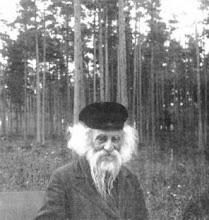What I consider the strongest argument for G-D, debated:
Jerry A. Coyne;
Miller raises another argument also used by creationists and theists as proof of celestial design: the so-called "fine tuning of the universe." It turns out that the existence of a universe that permits life as we know it depends heavily on the size of certain constants in the laws of physics. If, for example, the charge of the electron were slightly different, or if the disparity in mass between a proton and a neutron were slightly larger, or if other constants varied by more than a few percent, the universe would differ in important ways. Stars would not live long enough to allow life to emerge and evolve, there would be no solar systems, and the universe would lack the elements and the complex chemistry necessary for building organisms. In other words, we inhabit what is called a "Goldilocks universe," where nature's laws are just right to allow life to evolve and to thrive. This observation is called "the anthropic principle.".........
........Also, scientists have other explanations, ones based on reason rather than on faith. Perhaps some day, when we have a "theory of everything" that unifies all the forces of physics, we will see that this theory requires our universe to have the physical constants that we observe. Alternatively, there are intriguing "multiverse" theories that invoke the appearance of many universes, each with different physical laws; and we could have evolved only in one whose laws permit life. The physicist Lee Smolin has suggested a fascinating version of multiverse theory. Drawing a parallel with natural selection among organisms, Smolin proposed that physical constants of universes actually evolve by a type of "cosmological selection" among universes. It turns out that each black hole--and there are millions in our universe--might give rise to a new universe, and these new universes could have physical constants different from those of their ancestors. (This is analogous to mutation in biological evolution.) And universes with physical constants close to the ones we see today happen to be better at producing more black holes, which in turn produce more universes. (This resembles natural selection.) Eventually this process yields a population of universes enriched in those having just the right properties to produce stars (the source of black holes), planets, and life. Smolin's theory immensely raises the odds that life could appear.
KENNETH R. MILLER Responds:
For someone so insistent on empirical evidence, Coyne is remarkably quick to invoke faith when it suits his purposes. Realizing that the anthropic principle could indeed be seen as friendly to religion, he knows he just doesn't have enough evidence to reject it. So Coyne dreams that "perhaps some day, when we have a ‘theory of everything' that unifies all the forces of physics, we will see that this theory requires our universe to have the physical constants that we observe." Indeed. Perhaps we will. But even if we achieve that theory, we will still have to ask where the laws and principles of that theory come from, something that even Coyne at his speculative and hopeful best does not seem to appreciate............
.....Coyne's entire critique, then, is based upon an unspoken assumption he expects his readers to share, namely, that science is the only legitimate form of knowledge. To Coyne, any deviation from that view is an adulterous contradiction of the sacred scientific vow to exclude any possibility of the spiritual, not just from one's scientific work, but from the entirety of one's philosophical world view.
With all due respect to my distinguished colleague, that is nonsense. One can indeed embrace science in every respect, and still ask a deeper question, one in which Coyne seems to have no interest. Why does science work? Why is the world around us organized in a way that makes itself accessible to our powers of logic and intellect? The true vow of a scientist is to practice honest and open empiricism in every aspect of his scientific work. That vow does not preclude the scientist from stepping back, acknowledging the limitations of scientific knowledge, and asking the deeper questions of why we are here, and if existence has a purpose. Those questions are genuine and important, even if they are not scientific ones, and I believe they are worth answering........
Miller
Coyne
ir a principal |
Ir a lateral
Search
About Me
Recent Comments
Labels
Recent Post
Label Cloud
Top Commenters
Widget by Blogger Buster
Copyright © 2008 Rationally Pious | Design by Arcsin Web Templates - Blogger template by Blog and Web

